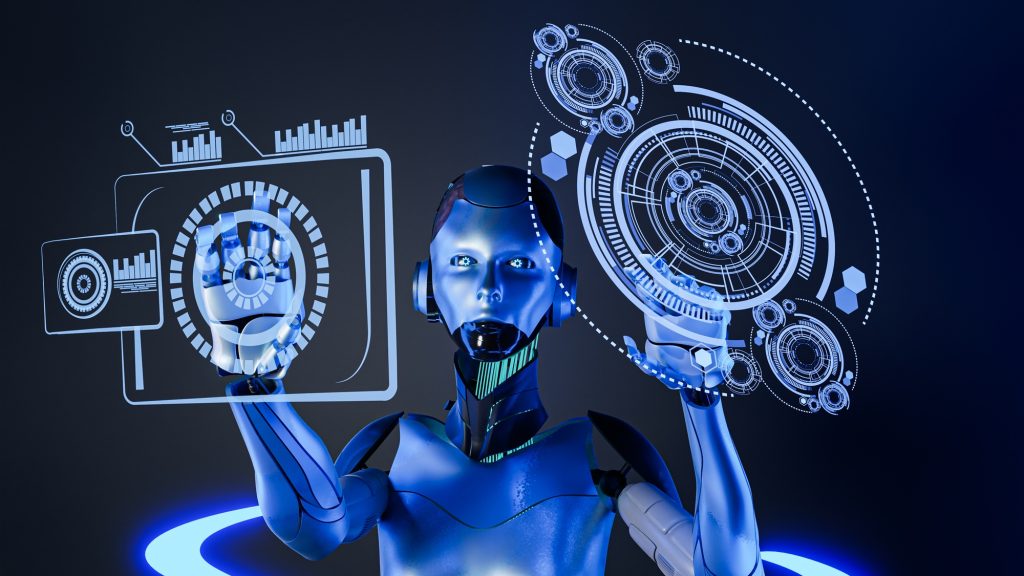Introduction
Artificial Intelligence (AI) has emerged as a transformative force, reshaping industries and revolutionizing the way we work. As AI technologies continue to advance, their integration into the workforce raises both excitement and concern. In this exploration of “AI and the Future of Work,” we’ll delve into the opportunities AI presents for businesses and employees while addressing the challenges that need careful consideration. Let’s embark on a journey to understand the dynamic relationship between humans and machines in the digital era.
- Enhancing Efficiency and Productivity: AI has the potential to supercharge workplace productivity. By automating repetitive tasks, data analysis, and decision-making processes, employees can focus on more creative, strategic, and value-added work. AI-driven tools and applications optimize workflows, leading to increased efficiency and reduced operational costs, making businesses more competitive and agile.
- Personalization and Customer Experience: In the era of customer-centricity, AI offers unprecedented opportunities to personalize customer experiences. AI-driven algorithms can analyze vast amounts of customer data to deliver targeted recommendations, tailored marketing messages, and proactive customer support. This heightened personalization fosters stronger customer loyalty and enhances brand reputation.
- Skill Augmentation, Not Replacement: Contrary to some fears, AI is not here to replace humans but to augment their skills. AI systems work best when combined with human creativity, empathy, and problem-solving abilities. As technology takes over repetitive tasks, employees can focus on harnessing their uniquely human traits, such as emotional intelligence, critical thinking, and complex decision-making.
- Addressing Workforce Skills Gap: The integration of AI necessitates a shift in the workforce’s skill set. To thrive in the digital era, continuous upskilling and reskilling become essential. Businesses and educational institutions must collaborate to provide learning opportunities in AI-related fields, empowering employees to embrace technology as an asset rather than a threat.
- Ethical Considerations: AI raises critical ethical questions in the workplace. Issues such as bias in algorithms, data privacy, and job displacement must be thoughtfully addressed. Establishing clear guidelines and ethical frameworks for AI implementation ensures fairness, transparency, and responsible use of AI technologies.
- Embracing Change and Adaptability: The future of work in the AI-driven world demands adaptability. Employees and organizations must foster a culture of continuous learning and openness to change. Embracing AI requires a growth mindset, where individuals and teams view challenges as opportunities to evolve and innovate.
- Redefining Job Roles and Industries: AI’s transformative potential extends beyond individual tasks; it redefines entire job roles and industries. As automation becomes more prevalent, new job opportunities in AI development, maintenance, and integration will arise. Businesses need to anticipate these shifts and prepare for a dynamic job market.
Conclusion: AI is a catalyst for change, reshaping the landscape of work as we know it. Embracing AI offers an array of possibilities, from enhanced productivity and personalized customer experiences to novel career paths and industries. As the future of work unfolds, a human-centric approach to AI integration is paramount. By investing in upskilling, fostering ethical practices, and nurturing adaptability, businesses and employees can navigate the opportunities and challenges presented by AI, ushering in a future where humans and machines coexist and thrive collaboratively. Let’s harness the power of AI to create a brighter, more innovative, and inclusive world of work. 🌟

